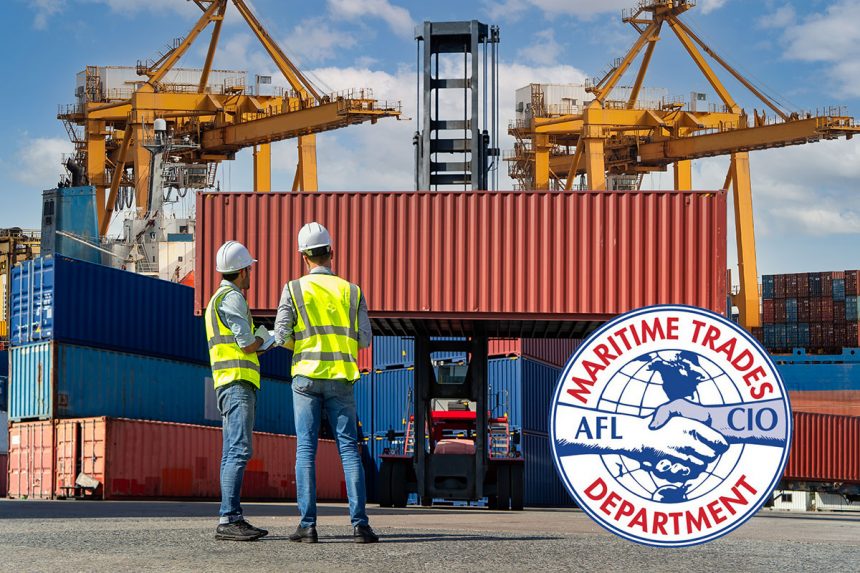Last month, the maritime industry and the nation recognized the 100th
anniversary of the Jones Act, the freight cabotage law that states
cargo moved from one domestic port to another must be moved aboard a
U.S.-crewed, U.S.-built, U.S.-flagged and U.S.-owned vessel.
Passed shortly after World War I, the Jones Act was part of the
Merchant Marine Act of 1920, which addressed the lack of U.S.-flag
shipping capacity to move, export and import goods. The Jones Act is
only the latest in a series of laws passed by Congress going back to
its first session in 1789-90 to support U.S. maritime interests.
Throughout the month of June, elected officials serving in the U.S.
Senate and the U.S. House of Representatives representing both major
political parties have proclaimed their support for the law.
In a joint statement issued by Sens. Roger Wicker (R-MS) and Maria
Cantwell (D-WA), the chair and ranking member of the Senate Commerce,
Science and Transportation Committee, as well as Reps. Peter DeFazio
(D-OR) and Sam Graves (R-MO), the chair and ranking member of the
House Transportation and Infrastructure Committee, “As bipartisan
leaders of the House and Senate committees with jurisdiction over
maritime matters, we are committed to preserving the Jones Act.
“The Jones Act has been a pillar of American security and prosperity
for a century. With the pandemic at hand, it is more valuable than
ever to our security and economic interests. We are committed to
seeing the Jones Act preserved for years to come,” the foursome wrote.
Reiterating his longstanding support for the measure and the industry,
Rep. John Garamendi (D-CA) declared, “Congress must continue to
support our nation’s maritime workforce by upholding the Jones Act and
opposing deeply misguided efforts to undermine it.”
National security was an important factor in several of the remarks
made to back the Jones Act.
“This pillar of maritime policy is to credit for successfully
protecting our our maritime economy and our national security for
nearly a century,” said Rep. John Rutherford (R-FL). “Removing the
market certainty that the Jones Act provides would decimate the
American maritime industry, putting our national security in
jeopardy.”
Added Rep. Rick Larsen (D-WA), “The Jones Act underpins U.S. maritime
defense policy and is essential to preserving national security
interests at home and aboard. Jones Act crews and vessels play a
critical role in securing the nation’s strategic interests.”
From Michigan’s Democratic Senator Gary Peters: “Each and every day,
365 days a year, the Jones Act functions to protect our nation’s
95,000 miles of coastline and inland waterways, limiting access to
foreign vessels and crews while mariners serve as the eyes and ears to
strengthen border and homeland security. Over the last 100 years, the
men and women of the U.S. maritime workforce have also unfailingly
answered the call of duty, providing vital services to support the
nation in times of crisis.”
“At its heart, this law strengthens American naval capabilities,
prevents foreign ships from roaming throughout our inland waterways,
and protects our country from unknown foreign threats,” noted Rep.
Steve Scalise (R-LA).
From his neighboring state of Mississippi, Republican Senator Cindy
Hyde-Smith said, “The Jones Act has enhanced American prosperity and
national security ever since its enactment on June 5, 1920. It puts
America first over subsidized foreign shipbuilders and foreign vessel
operators that do not pay U.S. taxes or comply with U.S. regulations.”
Rep. Filemon Vela (D-TX) responded, ” For the Department of Defense,
maintaining a U.S.-flagged fleet is critical to ensuring we have
sufficient U.S. sealift capability, available at a moment’s notice, to
defend our nation. Not only does the Jones Act support this vital
national security requirement, it also provides and economic benefit
to our nation.”
The chair of the House Subcommittee on Coast Guard and Maritime
Transportation, Rep. Sean Patrick Maloney (D-NY), pointed out, “The
bedrock principles and protections of the Jones Act are as essential
today as they were when the Congress bill was passed a century ago. We
are, at our core, a maritime nation. We cannot be complacent in our
defense of the Jones Act, which remains a critical component of U.S.
maritime and military strategy.”
That aspect was not lost on several other members of the House when
the Armed Services Subcommittee on Seapower and Projection Forces met
June 23 to review the Fiscal Year 2021 National Defense Authorization
Act.
Subcommittee Chair Joe Courtney (D-CT) recalled earlier remarks from
U.S. Maritime Administrator Mark Buzby and U.S. Transportation Command
Deputy Commander Dee Mewbourne (a U.S. Navy vice admiral) when he said
they “reiterated strongly the fact that the Jones Act is really
critical to making sure that we have the auxiliary fleet, sealift
fleet.”
Retired Navy commander, Rep. Elaine Luria (D-VA), added during the
hearing, “We all know the value of the Jones Act on our national
security, on our U.S.-flag merchant fleet, and in protecting American
jobs for American mariners.”
Referring to the Jones Act, Rep. Rob Wittman noted, “We understand how
incredibly important it is to U.S. maritime interests.”
But Congress wasn’t alone in realizing the value of the Jones Act to
the global economy.
The London-based International Transport Workers’ Federation (ITF)
wrote, “It is the standard towards which other national seafarers and
their unions strive to achieve, since it protects the right and
opportunity to work in their national trade on higher national wages
and working conditions. The Jones Act also helps raise global wages
and working conditions for seafarers in international trades through
the establishment of such high standards.”
The chair of the ITF’s Cabotage Task Force, Jim Given of Canada who
also serves as the MTD Eastern Area Executive Board Member, flat out
declared, “The Jones Act is the ‘flagship’ of cabotage laws.”

